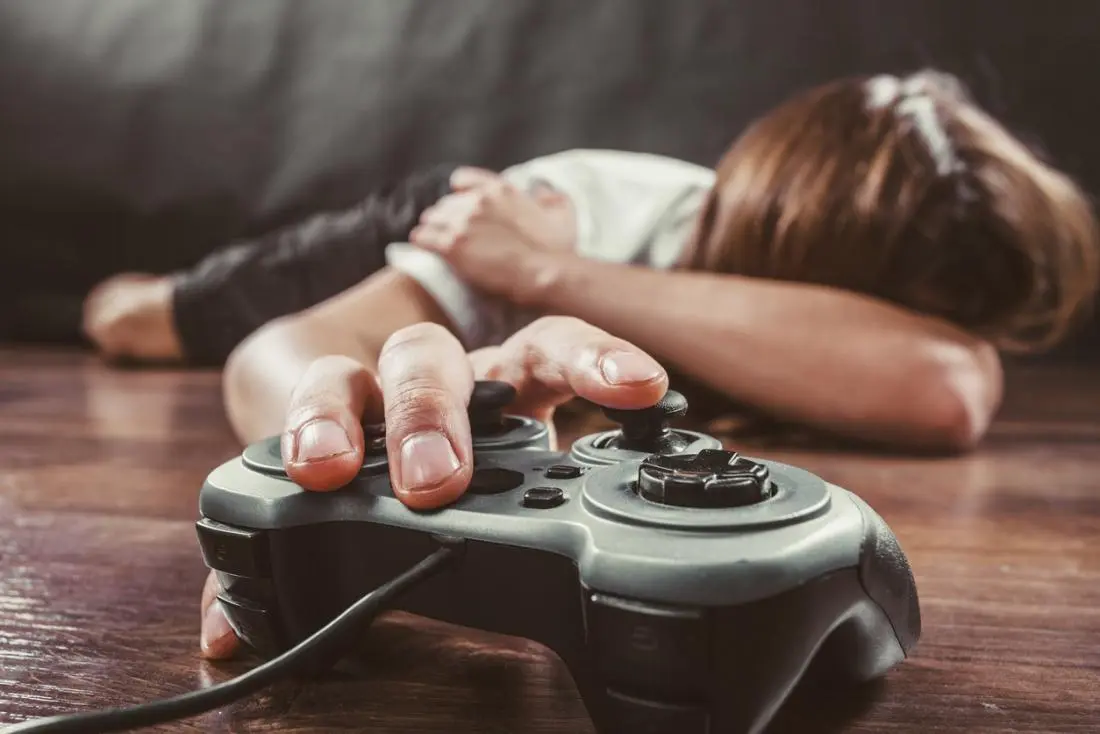Video games have become very popular, but now we’ll talk about how they affect our minds. They’re not just about fun; they can help us relax, improve our thinking skills, and even let us make friends online. Yet, spending too much time gaming might lead to issues like addiction, making us more easily upset, or disrupting our sleep patterns. It’s important to study how these games impact our mental health. By understanding both their positive and negative effects, we can learn to enjoy gaming responsibly, finding a balance that keeps us happy and mentally healthy while still having a great time playing.
Video games have both positive as well as negative impact on mental health.
Positive Effects of Video Games on Mental Health:
Stress reduction and relaxation:
Video games can help people relax and feel less stressed. These games take you into different worlds, letting you forget about everyday worries. Some games make you think and solve puzzles, which can take your mind off stress. They might even have calming music or peaceful scenes that help you feel more relaxed. Playing games in moderation can be a good way for mind sharpening, but it’s important to balance gaming with other activities for overall stress relief and well-being.
Cognitive stimulation and improvement:
Playing video games can make your brain work better. Some games need you to think hard, solve problems, and make quick decisions, which can make your brain sharper. Games like puzzles or strategy games make you use your brain in different ways. They can improve how you think and how well you do things with your hands and eyes. But playing too much or not doing other activities might not be good. It’s important to play games in moderation and also do other things to keep your brain sharp and healthy.
Social interaction and community building:
Video games let you play and make friends with people all over the world. You can team up, talk, and work together on missions. These games help you learn how to cooperate and make friends. They also let you hang out with friends or family by playing together. But it’s important to be careful online and balance gaming with other activities to stay connected in real life too. A balanced connection between playing games and real life activities can lead to a healthy mental life.
Negative Effects of Video Games on Mental Health:

Addiction and problematic gaming behaviors:
Video games can sometimes lead to addiction or problems for some people. This happens when gaming becomes more important than other important things like work, school, or friends. It can make someone spend too much time gaming, feel upset when not playing, and have trouble controlling how much they play. This can affect their health, sleep, and relationships. Setting limits on gaming time and seeking help if it feels hard to control gaming habits is important to stay healthy and balanced.
Increased aggression and desensitization:
Playing violent video games might make some people act more aggressively or get used to seeing violence. This can happen more in younger players. Seeing a lot of violence in games could make someone less bothered by it in real life. But not everyone who plays these games becomes aggressive. It’s important for parents to guide kids and limit exposure to violent content. Talking about what’s real and what’s in the game can help understand the effects of these games on behavior.
Sleep disturbances and sedentary lifestyle:
Playing lots of video games, especially before bed, can make it hard to sleep because they’re exciting and the screen light can mess up sleep. Also, sitting for a long time while gaming can make your body stiff and might make you gain weight. It’s good to take breaks and move around when gaming to stay healthy, and it’s smart to avoid playing games right before bedtime to sleep better. Playing games just before sleeping leads to poor mental health and bad sleep quality.
Moderation and Balance in Gaming:
Importance of moderation and responsible gaming habits:
Playing video games in moderation and with responsible habits is important for staying healthy. It means setting limits on how much you play, taking breaks, and making sure gaming doesn’t take over other important things like school, work, or spending time with friends and family. This helps avoid problems like addiction or sleep issues and lets you enjoy gaming while keeping a good balance in life.
Strategies for maintaining a healthy gaming lifestyle:
Maintaining a healthy gaming routine involves setting time limits, taking breaks, balancing activities, selecting games wisely, avoiding late-night play, staying physically comfortable, checking emotions, and seeking help if needed. These practices help ensure a balanced approach to gaming while prioritizing overall well-being.
Encouraging diverse activities beyond gaming for holistic well-being:
Engaging in different other activities beyond gaming is crucial for overall well-being. Physical activities, creative hobbies, spending time with loved ones, and relaxation practices like meditation offer a balanced and fulfilling life. They reduce stress, boost mood, nurture relationships, and enhance personal growth.
Addressing Mental Health Challenges Related to Gaming:
Signs of gaming addiction or negative impacts on mental health:
Signs of gaming addiction or negative impacts on mental health include loss of control over gaming habits, withdrawal symptoms when not playing, neglecting responsibilities, physical health changes, mood swings, social withdrawal, and continued gaming despite knowing its negative consequences. Recognizing these signs early is important for seeking help and addressing gaming-related issues.
Seeking professional help and resources for individuals affected:
Getting help for video game addiction is important. You can talk to therapists who understand gaming problems, join support groups, or use treatment programs. There are educational websites and hotlines to help too. Involving your family can also make a big difference. Trying self-help methods like setting limits or practicing mindfulness can also be useful. These steps can help you deal with gaming addiction and start feeling better.
Supportive environments and interventions for gamers:
Creating supportive environments and interventions for gamers involves educating about responsible gaming, establishing safe online spaces, involving families, providing access to therapists, forming peer support groups, setting clear gaming guidelines, promoting diverse activities, and offering online resources. These steps encourage healthy gaming habits and prioritize mental well-being in gaming communities.
Conclusion:
In short, video games affect mental health in different ways. They can be good for thinking and making friends, but playing too much can cause problems like addiction and stress. Balancing gaming with other things, not playing too much, and creating supportive gaming places are important for feeling good while playing. Understanding these things helps us enjoy games while staying mentally healthy.

